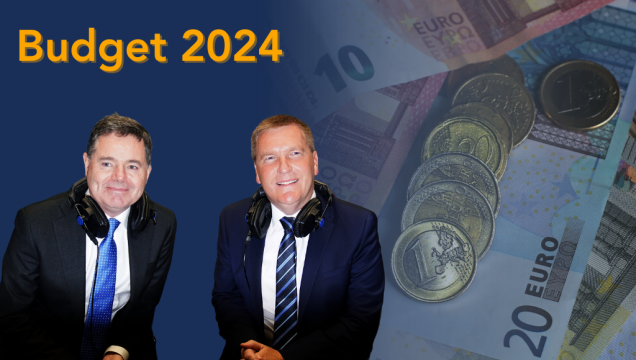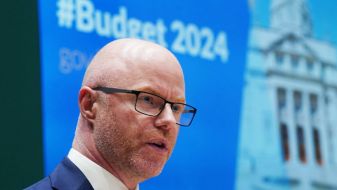As temperatures have cooled somewhat on the cost-of-living crisis, Budget 2024 will aim to strike a balancing act between easing spending pressures for individuals while not going so far as to further drive inflation.
Following the Cabinet reshuffle earlier this year, Tuesday's budget marks the first for Fianna Fáil's Michael McGrath as Minister for Finance.
His predecessor, Paschal Donohoe, will be close at hand though, announcing the measures alongside Mr McGrath as Minister for Public Expenditure and Reform.
The Ministers have €1.15 billion to pay with by way of taxation changes, while Government figures have previously indicated there will be approximately €5.25 billion available for new core spending.
Here's what they are expected to unveil on Tuesday, and what it might mean for you.
Universal Social Charge
The controversial USC was brought in following the 2008 financial crash as a temporary measure in 2011 but has stuck around.
USC is charged on income on a scale ranging from 0.5 to 11 per cent depending on the amount you earn. However, if you earn less than €13,000 annually, you do not pay USC.
One of the major points of Budget 2024 is expected to be changes to the USC. What forms these changes take is yet uncertain, but it is likely there will be a cut in the region of 0.5 per cent to some of the bands.
Another potential move could be to raise the threshold at which earners begin paying USC up from €13,000, which would reduce the amount of income for which all workers are liable to pay USC, but it would particularly benefit lower-income earners.
Income tax bands
Fine Gael has repeatedly tried to position itself as the leader in the fight for the 'squeezed middle', otherwise known as middle-income earners who pay the higher rate of tax on some of their income because they narrowly fall into the upper bracket.
As was seen in last year's budget, one way the Government has sought to reduce the tax burden of these workers is by expanding the lower tax band at which income is charged at 20 per cent rather than 40 per cent.
In Budget 2023, the cut-off point for the lower rate was increased from €36,800 to €40,000, and it is expected this may be hiked further on Tuesday, perhaps to around €41,000.
In short, the more income you can earn on which you pay the lower rate of tax, the less tax you have to pay. So again, this is a move that will particularly benefit those middle-income earners.
Credits
After last year's whopper €4.1 billion Cost-of-Living package announced as part of the budget, the Government clearly felt the pressure was on to come up with something similar this time around.
Recent weeks have seen Ministers scurrying to dampen expectations, stressing that while there will be reliefs announced on Tuesday, they won't be on par with last year's.
Among the measures announced in Budget 2023 which are expected to make a reappearance this time around are the energy and rent credits.
Last year, a total of €600 per household was offered in three €200 instalments, but recent declines in wholesale energy prices and the slow knock-on effect its having on domestic rates means its likely this year's amount will be less. Perhaps fewer payments, or the same number of payments to a lower value.
On the other hand, it's thought the rent credit is in line for an increase which could bump it up from last year's €500 to somewhere around the €800-mark.
Excise
Another area where consumers have been feeling the squeeze is at the pumps, as petrol and diesel resumed their steady climb towards €2 a litre once again.
Excise duty was due to increase later this year following measures previously taken to reduce prices following the spike caused by the war in Ukraine.
A previous unwinding of the temporary measure in August saw petrol and diesel prices rise by 7c and 5c respectively overnight.
However, it is likely the upcoming budget will scrap the next planned excise duty increase.
Welfare
Social welfare rates were increased across the board last year due to the rising cost of living, and it's believed a similar rise is on the way in Budget 2024.
It's rumoured the increase will add at least €10 to the weekly payment.







